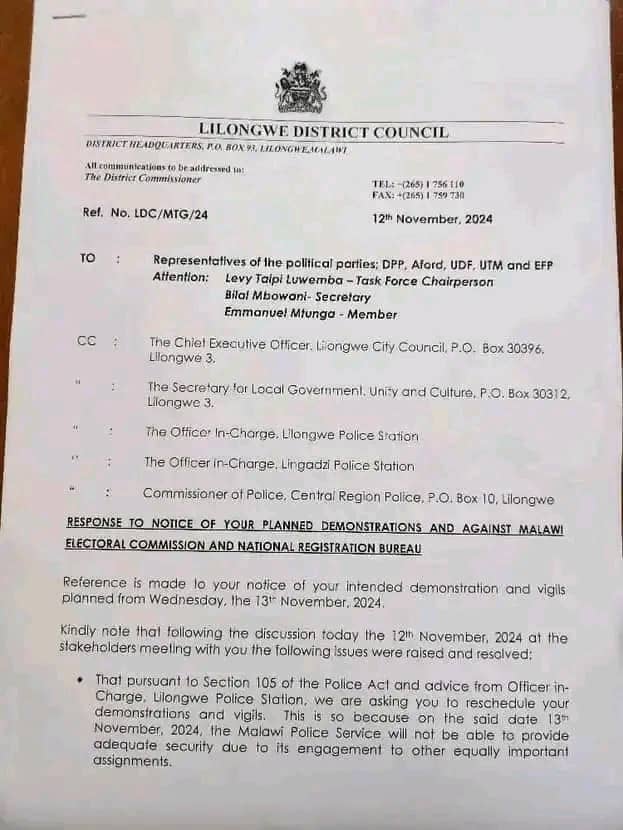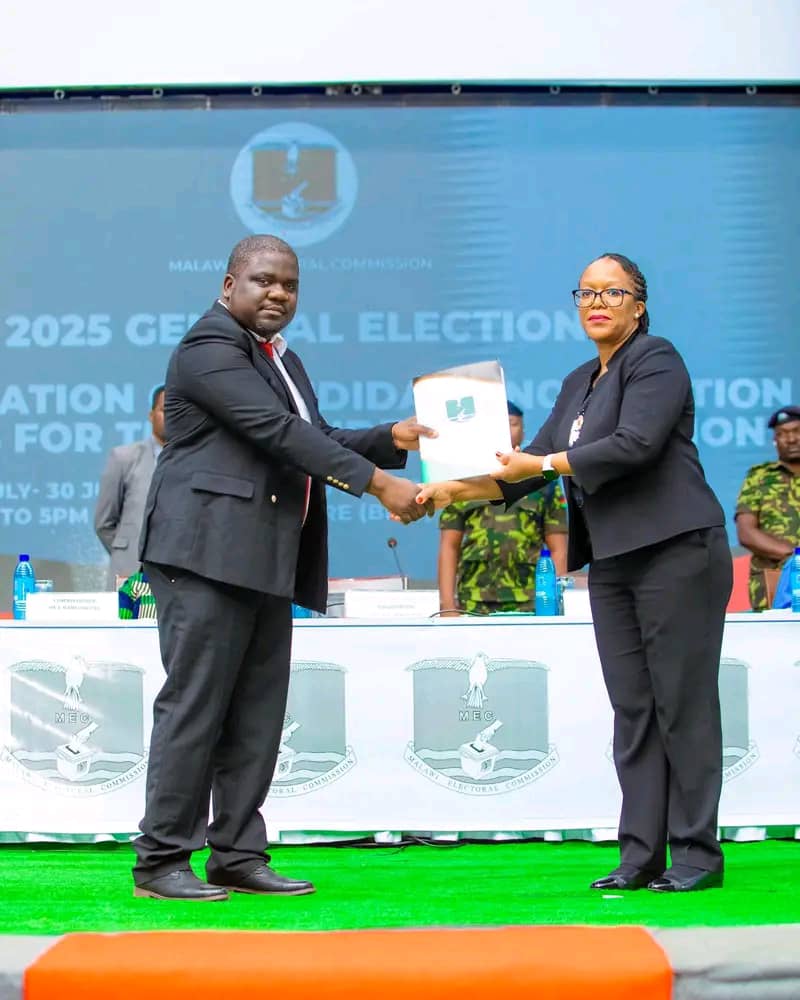By Burnett Munthali
Lilongwe District Commissioner Lawford Palani has formally requested that opposition parties reschedule their planned demonstrations, originally set for tomorrow. The protests, spearheaded by opposition parties UTM, DPP, AFORD, UDF, and the EFM, were intended to call for the resignation of Malawi Electoral Commission (MEC) Chairperson Annabel Mtalimanja and MEC Chief Elections Officer Andrew Mpesi. The opposition parties are also demanding that MEC revert to using manual transmission of election results instead of the Smartmatic electronic system.
In a letter addressed to the parties, Palani cited security concerns as the main reason for his request. He explained that the police would not be able to provide sufficient security due to their involvement in other critical assignments. “Given the current engagements of our security personnel, it will not be possible to ensure adequate policing during the demonstrations,” he stated. This concern over resource allocation raises questions about the government’s ability to handle both routine security operations and the additional needs for public order during mass gatherings.
The opposition’s demands for changes within MEC come amid growing skepticism over the transparency and integrity of the electoral process. With Smartmatic’s electronic transmission system set to be used in the upcoming elections, opposition leaders argue that manual transmission would provide greater reliability and reduce potential avenues for tampering or manipulation. The call for Mtalimanja and Mpesi to step down is rooted in what opposition figures describe as a loss of public trust in MEC’s leadership, compounded by recent controversies over voter roll accuracy and allegations of mishandling sensitive electoral data.
While Palani’s request aims to ensure public safety, opposition leaders view it as a tactic to silence their calls for reform. They argue that delays in addressing their grievances could erode public confidence in the electoral system and stoke further frustration among citizens.
At this juncture, it remains unclear whether the opposition will heed the District Commissioner’s call to delay the protests or proceed with their plans. The next steps will not only shape the political landscape but also test the government’s responsiveness to public concerns over the democratic process. For now, all eyes are on Lilongwe as both the authorities and the opposition weigh their options for navigating this pivotal moment in Malawian democracy.



